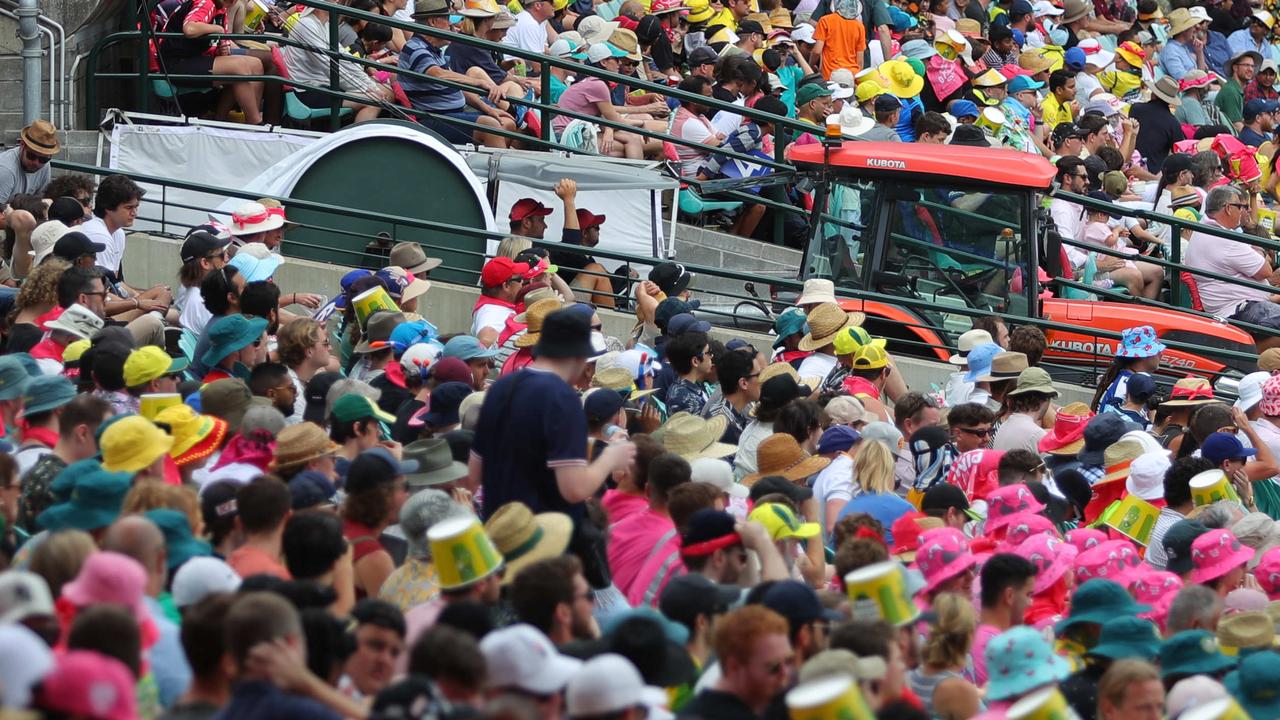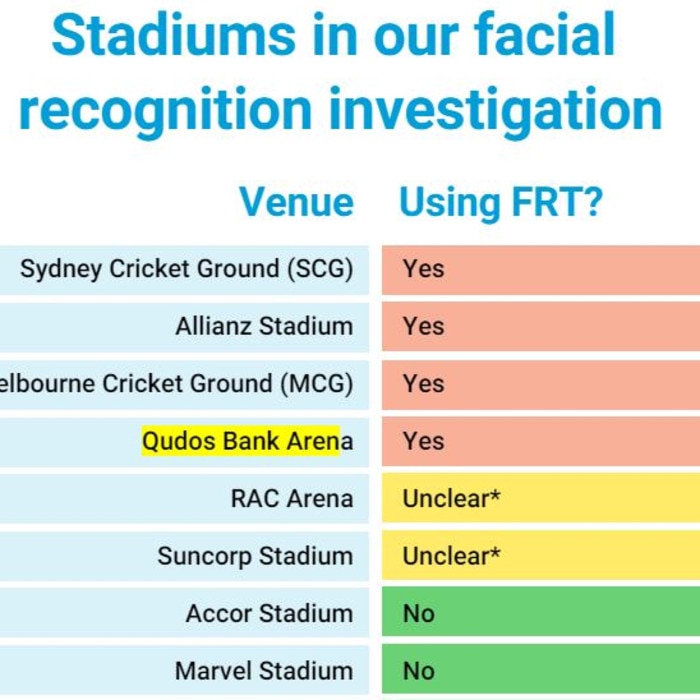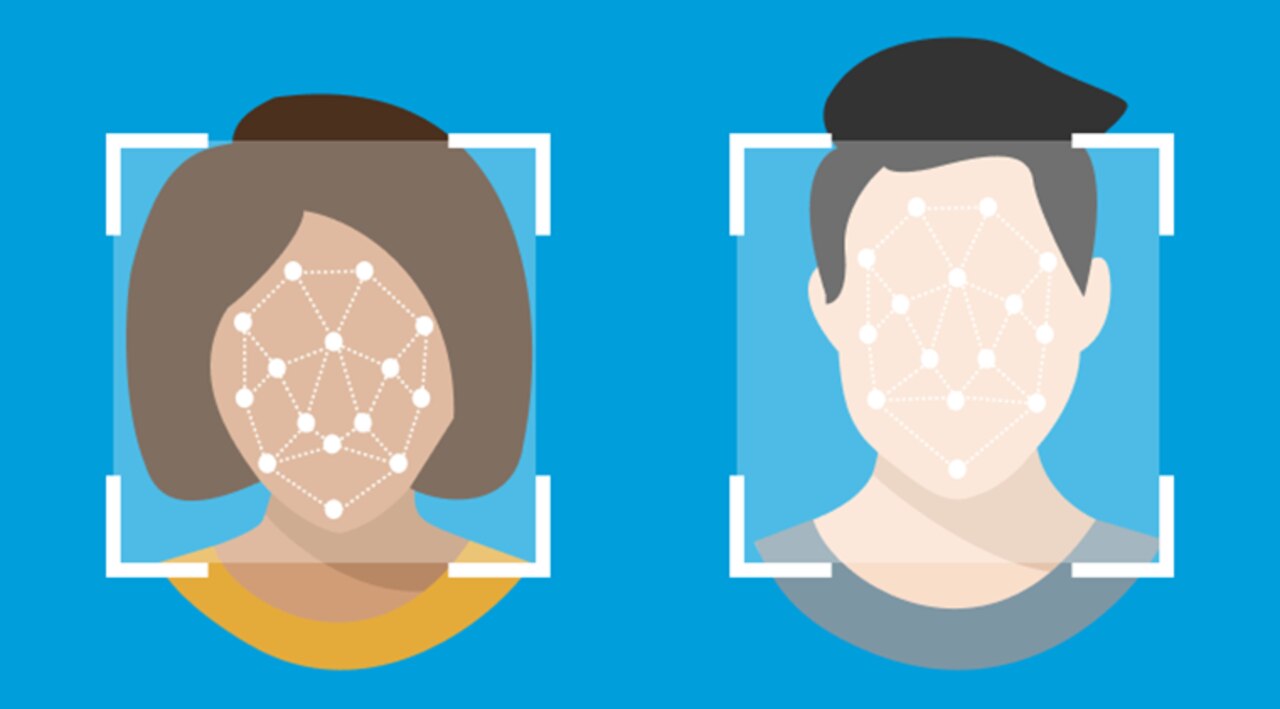‘Concerning’ rise of facial recognition cameras in major Australian stadiums
Sporting and concert venues are using facial recognition technology often without consent, a disturbing investigation has found.

Major sporting and concert venues are using facial recognition technology often without patrons knowledge or consent, a disturbing investigation has found.
Facial recognition is a controversial technology which involves the use of cameras to collect a unique ‘faceprint’ of someone, which is often then matched to a database.
Most alarming is the potential link between facial data collection and companies that make money out of selling that stored data.
Consumer group CHOICE analysed the privacy policy and conditions of entry statements of ten stadiums around Australia, and revealed many allowed for facial recognition to be used, but gave little warning to the public.

“I think one of the main problems from a consumer’s perspective is that they don’t know when facial recognition is being used and then when they are told that it is being used, it’s very deep in some conditions of entry or privacy policy,” CHOICE’s consumer data advocate Kate Bower.
“They often don’t find out about it until after they’ve already bought a ticket. But then even when they do find out, they have no idea what it’s being used for, they’ve got no idea how long their information is stored, how securely it’s stored. The consumers don’t really have a choice.”
Ms Bower said it was “extremely concerning” that the cameras were in operation without “clear information for consumers about where, how and why” they are being used.

Some of Australia’s best known sporting stadiums, including the Sydney Cricket Ground (SCG), the Melbourne Cricket Ground (MCG) and Allianz Stadium state in their conditions of entry that FRT is in use.
But MCG did not respond to requests for clarification on the type of data it collects, what “functions” it is used for, or how long the images are stored.
A spokesman for Venues NSW, which owns and operates the SCG and Allianz stadiums, responded to inquiries only to say: “We abide strictly with our privacy obligations. We do not monetise facial recognition data”.


Images stored ‘a period of time’
While there are data security and privacy concerns arising from customers having their faceprints stored, perhaps most alarming is the idea that the data is often stored and shared with other companies.
Qudos Bank Arena is a major concert venue in Sydney owned by TEG, and which contracts ASM to manage.
ASM told CHOICE they do use facial recognition at the venue and that images of persons who had been evicted or issued banning notices were stored on the system “for a period of time”.
When asked whether customers were made aware of the use of facial recognition cameras, the company said digital signage was displayed in addition to traditional signs at all external entry points.
Qudos Bank Arena’s conditions of entry available on their website is over 3000 words.

Major data broker
Dr Katharine Kemp from the Faculty of Law and Justice at the University of New South Wales says TEG has signed lucrative contracts to provide “data enrichment” with the likes of FlyBuys, NewsCorp and Seven West Media.
Data enrichment is a process by which several companies share the data they have on a single customer in order to build larger and more in-depth profiles of spending and behavioural habits.

Dr Kemp says TEG should be more transparent about the data they are collecting and what they are doing with it.
“They’re not providing information, they’re not being accountable about what they’re doing with that sensitive data. They seem to regard themselves as not accountable to the consumers or responsible for what might happen to that information,” she said.
carla.mascarenhas@news.com.au






